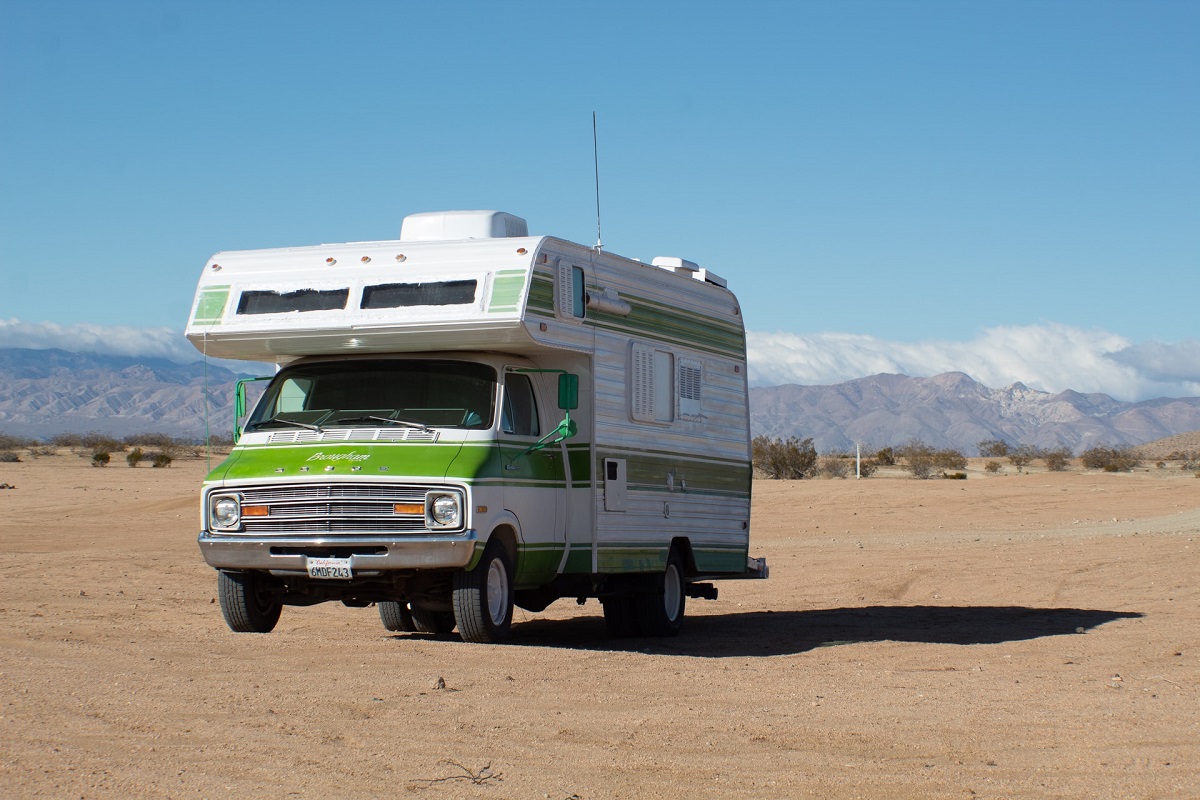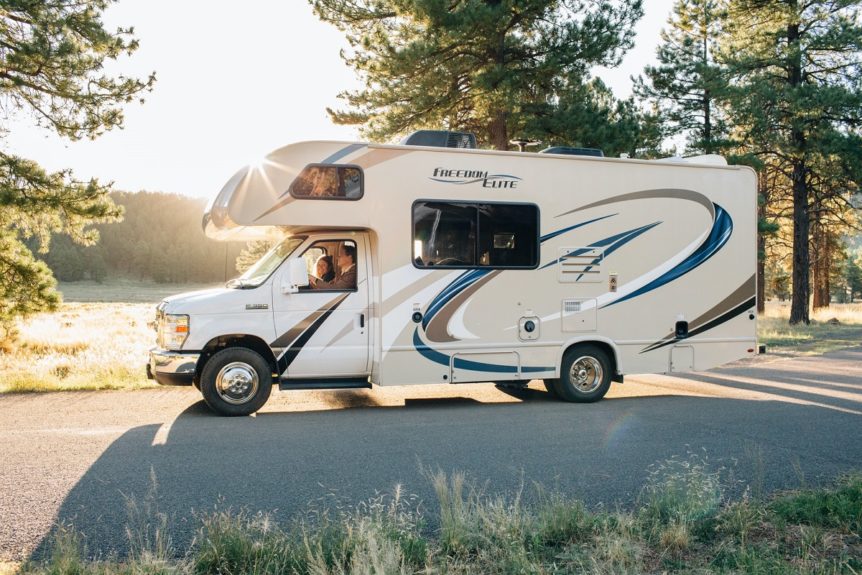According to data from the RV Industry Association, more than 11 million households in the United States own a recreational vehicle or RV. Contrary to popular belief, RV owners are getting younger, with individuals aged 48 years and below accounting for more than 50 percent of the overall ownership rates.
The surge in RV ownership in recent years has come with its fair share of drawbacks associated with expensive auto purchases – everything from a leaky roof or flimsy fridge to faulty components like engine failure. While these may sound like different issues, they are all covered under RV warranty laws. This article explores everything you need to know about what RV warranties cover.
What Does RV Warranty Cover?
There are generally two types of recreational vehicle warranties. Each covers different types of RVs and different things within the vehicle. Below is a detailed overview of how they work.
RV Manufacturer’s Warranty
Warranties that fall in this category are issued for new RVs. They vary in duration depending on the specific brand. Depending on the manufacturer, you could be looking at anywhere between 1 and 3 years or up to a predetermined mileage. RV manufacturer warranties may also come in the form of a structural warranty, limited warranty, or more.
Most of the warranties that fall in this category will cover an RV for one year, end to end. This means you can ride around in it with the peace of mind that the manufacturer’s RV warranty covers everything from the appliances within to the frame of your vehicle should any of them malfunction during this period.
Manufacturer Warranty Law
This branch of law is governed by the provisions of the FTC rules, the Magnuson-Moss Warranty Act, and the Uniform Commercial Code (UCC). These laws cover the implied or express guarantee of a product’s quality and reliability as provided by the seller.
If the product in question, which in this case would be the RV, fails to perform as described or breaks down, then it is deemed to have failed to meet the requirements of the warranty.
Under warranty, the buyer may be able to have the item repaired at no additional cost to them, return the item and receive a full refund on the purchase, or receive a replacement.
RV Extended Warranty
An extended warranty is offered to a buyer after their initial purchase and at an additional cost. It is usually good to get an extended warranty when buying a used RV or as a backup when your original manufacturer’s warranty expires.
If your RV runs into unexpected electrical or mechanical issues, these would be covered under an extended warranty if the manufacturer’s warranty is no longer valid. These can include anything from the costs incurred for replacing appliances, repairing faulty parts, engines, slide-outs, and more.
There are two principal types of extended RV warranties.
1. Exclusionary Warranty
This type of extended warranty provides significant coverage. Exclusionary warranties cover every type of mechanical and electrical failure that may occur except for anything listed under the exclusions as detailed in the terms and conditions of the contract.
If you’re looking for an extended warranty for your RV, an exclusionary policy would be your best bet for peace of mind. They provide the most comprehensive form of coverage.
2. Inclusionary Warranty
These types of extended warranties cover specific things detailed in the contract. For this reason, inclusionary extended RV warranties offer lower coverage compared to their exclusionary counterparts.
Are RV Extended Warranties Worth It?
There’s no right or wrong answer for this. It all comes down to whether or not you believe it is worth the investment. If you tend to do a lot of DIY repairs and maintenance work and generally know your way around your RV, then spending the extra bucks for an extended warranty may not be worth it, in your opinion.
On the other hand, if you’re not that “self-insured” and wouldn’t know where to start if something malfunctioned in your RV, you’re better off getting a comprehensive extended warranty for peace of mind.
As mentioned earlier, most manufacturers’ warranties expire after 1-3 years, depending, of course, on the brand. Rather than leave yourself exposed to risk, getting an extended warranty will save you from having to pay for the repairs out of pocket.
Things That Are Covered Under RV Warranties
Most RV warranties cover the normal failure of RV components under what would be defined as “normal conditions.” It’s important to keep in mind that there are certain activities that may invalidate it under RV warranty laws, such as misuse. This, however, will usually be stipulated in the terms and conditions of the warranty.
Your standard RV warranty will cover the mechanical components of your RV that, with extended use, will inevitably fail over time. Failing water heaters, water pumps, generators, awning motors, and RV steps are a few examples of some of the mechanical parts that would be covered under a comprehensive RV warranty.
These warranties also extend coverage to larger items that malfunction. Things like hydraulic or electric slides, leveling jacks, and even major parts like the engine and transmission would also be covered under an RV warranty. Always read the terms of your contract to confirm which items are covered under your specific policy. For instance, if an RV tire warranty is a must-have for you, check to see that it is included in the comprehensive policy.
Things That Are Not Covered Under RV Warranties
Now that you know what a standard RV warranty covers, it’s important to know what most warranties don’t cover.
Right off the bat, an RV warranty is not a replacement for RV insurance. If you end up clipping a tree as you back out of the campground or are involved in a wreck, that’s not covered under your RV warranty. Your insurance policy should take care of that.
The same thing applies if the air conditioner on your roof doesn’t make it through the bridge clearance and ends up getting ripped off your RV. That’s also an insurance concern.
Keep in mind as well that having an RV warranty isn’t a license to neglect basic RV maintenance. If the mechanical or electrical components malfunction as a result of failing to do the minimum required amount of maintenance, it might void your warranty.
The company issuing the warranty coverage may need to see the service technician’s notes indicating how frequently maintenance had been carried out on the vehicle.
State Lemon Laws

For most people, purchasing an RV might be the single largest investment they’ll ever make in their lifetime. Whether you buy a travel trailer, 5th wheel trailer, motorhome, or any other type of RV, there’s always the risk that you might end up with a lemon on your hands.
We have it on good authority that thousands of RVs purchased every year in the United States turn out to be defective. If someone sold you a faulty RV, state and federal lemon laws could provide legal recourse to help protect your investment.
It’s important to mention at this point that there are states with RV lemon laws and states that don’t cover recreational vehicles or motorhomes. Ensure you familiarize yourself with your state’s lemon laws and determine whether the law covers your defective purchase.
With that in mind, what exactly qualifies as a “lemon” as far as RV laws go? Below is a list of the basic criteria an RV needs to meet to be considered a lemon.
- The RV should still be covered under warranty but has gone through two unsuccessful attempts to resolve the issue (the number of attempts may vary by state).
- The fault should have rendered the RV unable to drive, and its market value should have decreased significantly as a result.
- The RV should have started displaying issues related to the fault within the first 18,000 miles or 18 months of use.
If any of the scenarios outlined above apply to your current RV situation, you are covered under RV lemon law if your state has it. If your state does have a lemon law, it might have restrictions on the number of attempts made to fix the fault, the number of days the RV was out of service, and the weight.
For instance, the lemon laws in Arkansas, California, and Delaware only apply to issues with the chassis. Florida lemon law requires the owner to have made at least four unsuccessful attempts at repair, and the RV needs to have been out of service for at least 60 days. North Carolina, Oklahoma, and Wyoming lemon laws also have weight restrictions on RVs that can be considered lemons.
Federal RV Lemon Law Statute
If you believe that you purchased a lemon and the lemon law in your state excludes recreational vehicles, you can still pursue legal action against the seller under the Magnuson-Moss Warranty Act. The federal law, which was enacted in 1975, is designed to govern consumer product warranties.
The Act’s provisions compel manufacturers and retailers of consumer goods to give customers clear, concise, and detailed information on warranty coverage. If the manufacturer of your RV fails to honor the written warranty, the federal lemon law exists to protect you from losing your investment.
According to the Act’s provisions, the manufacturer should be given ample opportunity to remedy the situation. You’ll need to take your RV to them or an authorized dealer and allow them to repair the issue. Ensure that you keep detailed records of your complaints and the duration the RV was out of service.
All communications should be in the form of written correspondence between you and the manufacturer or dealer. That way, if the issue persists even after the required number of repair attempts have been made, you’ll have documented proof to back your claim.
If, after multiple repair attempts, the issue problem fails to resolve, get in touch with a lemon law attorney and discuss the options available to you for legal remedy.
Keystone RV Class Action Lawsuit
A proposed class-action suit names Keystone RV Company, LLC. as the defendant in a case alleging that the RV manufacturer failed to adequately warn consumers of the potential harm extended occupancy of its RVs posed. The plaintiffs in the suit allege that they bought the recreational vehicles with the intention of living in them full-time but later began to suffer from what they term “serious respiratory problems.”
The class-action suit cites the lack of proper air circulation and the presence of formaldehyde and other dangerous chemicals as the reason behind the emergence of toxic mildew and mold inside the RVs.
One of the plaintiffs in the lawsuit alleges that she and her spouse bought an RV from Keystone, which later developed black mold due to the high moisture levels in the recreational vehicle.
She further alleged that their respiratory conditions were aggravated when spending time inside the RV. Their health issues continued to deteriorate over time, and, as a result, they had no choice but to rent an apartment whose cost was beyond anything they could comfortably afford.
Court documents indicate that all her efforts to reach Keystone RV and get them to resolve the issues hit a snag. Her husband died from Obstructive Pulmonary disease a year after they purchased the RV. The plaintiff alleges that her husband’s respiratory condition was aggravated by the hazardous living conditions inside the vehicle.
Two of the other complainants in the suit brought forth similar allegations, describing higher-than-average moisture levels in the RV. One ended up getting hospitalized after suffering two bouts of pneumonia, and the other was left paying for four months’ worth of repair work resulting from the damage caused by the excessive moisture in the RV.
Need more legal advice? Chat with a Laws101 attorney online right now.
